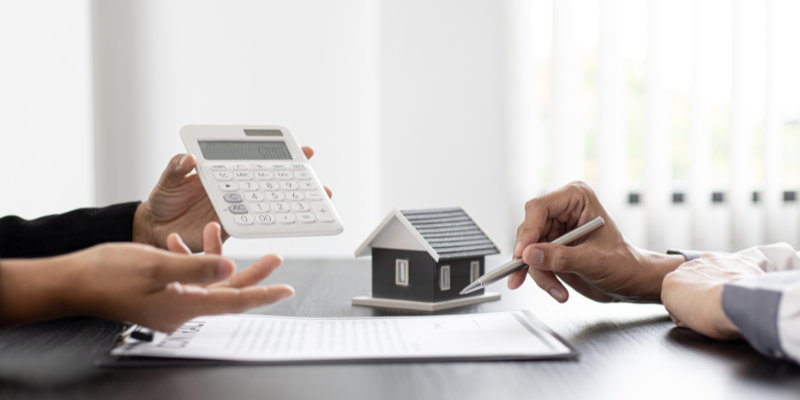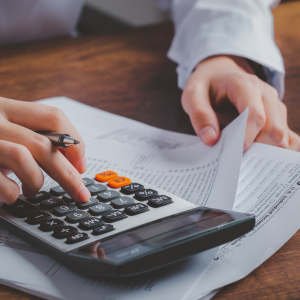
Understanding Capital Gains Tax on Home Sales in Chino, California
Understanding how capital gains tax can affect pay when selling a home in Chino, California, is essential. Capital gains tax is charged on the profit made from the sale of a property. It is determined by taking the selling price and subtracting the purchase price and any additional value-adding improvements.
Homeowners in Chino, as in the rest of California, enjoy specific exclusions that lower income tax, especially in the case of a sale. The IRS offers a significant exclusion for primary residences—up to $250,000 for single filers and $500,000 for married couples filing jointly—as long as specific criteria are met.
These include ownership and use tests, which mandate that the seller has owned and lived in the residence for at least two of the five years preceding the sale. Homeowners also need to consider state taxes, as in California, state tax rates have rules that can affect the total liability.
By understanding these regulations, sellers in Chino can better navigate their tax obligations and maximize their profits from home sales.
Navigating Property Taxes When Selling a House in California
Being informed about liability concerning property tax helps to optimize any returns from selling a house in Chino, California. In California, property taxes are controlled by Proposition 13, which limits yearly escalations to 2%. Nonetheless, the assessed value resets to the new owner’s purchase price when the home is sold.
From this, you may not experience significant shifts in tax liability as a seller. Despite this, it’s essential to consider the possible capital gains tax on any profit realized from the sale.
California follows federal guidelines with some variations; homeowners can exclude up to $250,000 (or $500,000 for married couples) of capital gains if they meet specific residency criteria. Beyond capital gains tax considerations, sellers must ensure all outstanding property taxes are settled before closing.
Understanding these nuances helps one navigate the complex landscape of property taxation during a home sale in Chino and ensures compliance with local and state regulations.
Blue Wave Investments can assist and guide through property tax requirements, helping ensure all taxes are settled before closing and clarifying how Proposition 13 and capital gains exclusions may affect their bottom line during a home sale.
Exemptions and Deductions for Home Sellers in Chino, CA
When selling a home in Chino, California, understanding the available exemptions and deductions can significantly impact your tax obligations. Home sellers may qualify for the capital gains tax exclusion, which allows individuals to exclude up to $250,000 of profit from the sale of their primary residence. In contrast, married couples filing jointly can exclude up to $500,000.
To meet this home sale exclusion qualification, sellers must have owned and used the home as their primary residence for at least two of the five years preceding the sale. In addition, selling costs such as real estate agent fees, advertising for the sale, staging the home, and legal costs may be deducted from the gain, subject to tax.
Sellers in Chino must maintain accurate documentation of these expenses and are advised to meet with a tax professional to ensure they maximize all possible deductions. Homeowners in Chino can better manage their finances by understanding how these exemptions and deductions work, which allows them to minimize their taxable income and maximize their financial gains.
How to Calculate Taxes Owed on Real Estate Transactions in Chino
When computing taxes owed on properties located in Chino, California, it is necessary to pay attention to the different parts of the tax amount. First, however, it will be useful to check the capital gains tax, which applies to the profit made upon selling your home.
Conversely, this profit is determined by your property’s selling price minus the cost of buying it and significantly improving or repairing the property. You qualify to be deducted from the federal capital gains tax, the bracket which ranges from 0% to 20% varies based on your income.
In California, you’ll also need to account for state-specific taxes on capital gains, which can add an extra layer of complexity. Homeowners may qualify for certain exemptions, such as the $250,000 exclusion for single filers or $500,000 for married couples filing jointly, if they meet residency requirements.
Detailed documentation of every relevant cost and enhancement is critical to obtaining precise calculations and maximizing available deductions. For cases involving property sales in Chino, consulting with a tax expert familiar with federal and California tax regulations will be beneficial in handling these intricacies.
Impact of the 2023 Tax Laws on Home Sales in California
The 2023 tax laws in California have affected the selling of homes, especially in Chino. One of the changes is in the capital gains tax, which changes the amount of tax homeowners have to pay while selling a home.
Because of the new laws, the exemptions for primary homes have been altered, which affects both single filers and married couples. These changes are important for Chino homeowners as they help reduce the financial impact when selling their homes.
Also, Proposition 19 still allows specific categories of homeowners—like those over 55 or disabled—to relocate within the state and transfer their property tax base under specific conditions. Such homeowners are eligible for tax benefits as they can migrate without losing them. With these changes, sellers need to pay closer attention to the timing of their sales and tax obligations.
In addition, given California’s high real estate prices, these tax changes must be monitored closely to maximize the outcomes. Homeowners thinking about selling should carefully work with tax experts at the federal and state levels. These navigators would help the homeowners in this constantly shifting landscape.
Selling your home in Chino or anywhere in California? Contact us to understand how the 2023 tax laws, including capital gains and Proposition 19 changes, could impact your sale. We’ll guide you and connect you with the right experts.
Strategies to Minimize Taxes When Selling Your House in Chino

When selling your house in Chino, California, there are several strategies to minimize the taxes you might owe. One practical approach is to take advantage of the primary residence exclusion, which allows married couples filing jointly to exclude up to $500,000 of capital gains from their taxable income if they’ve lived in the home for at least two out of the last five years.
This exclusion is capped at $250,000 for single filers. Another strategy involves timing your sale strategically to align with lower-income years or offsetting gains with losses from other investments.
Like selling expenses, specific home improvements can be counted toward home selling costs, lowering the taxable gain so homeowners can maximize their costs. If another residential investment is in the pipeline, a 1031 exchange can be helpful; it allows deferring payment of capital gains taxes when the proceeds are rolled into a similar investment property.
For selling a home in Chino, a tax advisor specialized in California laws will help with compliance issues and offer guidance for cost-effective solutions for the home selling tax, thus helping in personal situations. Further, the trust will aid in savings optimization.
Reporting Real Estate Income: IRS Requirements for Californians
When selling a home in Chino, California, homeowners must understand the IRS requirements for reporting real estate income. Home sellers must accurately report any capital gains from the sale on their federal tax return.
In California, specific rules apply to determine the taxable amount, such as considering the property’s original purchase price and any qualifying improvements that can adjust the cost basis. Homeowners can potentially exclude up to $250,000 of gain if filing individually, or $500,000 for married couples filing jointly, provided they meet certain conditions like using the property as a primary residence for at least two of the five years preceding the sale.
Californians should also be aware of state-specific tax implications and ensure compliance with federal and state regulations. It’s essential to keep thorough records of all transactions related to real estate sales and consult with a tax professional to navigate these complex requirements effectively.
Differences Between State and Federal Taxes on Home Sale Profits
In Chino, California, selling a home has unique requirements, including knowing how state and federal taxes differ. On a federal scale, if your home has appreciated since you purchased it, you might need to pay a capital gains tax.
The IRS allows for certain exemptions; for instance, single filers can exclude up to $250,000 of profit from their taxable income, while married couples filing jointly can exclude up to $500,000, provided they meet specific residency requirements. In contrast, California imposes its state income tax on capital gains derived from home sales.
In contrast to federal taxes on capital gains with an exclusion amount, California does not provide any exclusion for primary residences. Hence, all capital gains are subject to taxation as ordinary income using California’s progressive tax rates.
Thus, knowing state and federal regulations is vital when planning your financial strategy for selling your property in Chino.
The Role of Closing Costs in Reducing Taxable Gains From a House Sale
For homeowners in Chino, California, grasping how closing costs influence taxable gains is essential when selling a house. These costs, which include, but are not limited to, title insurance, escrow fees, and legal expenses, significantly mitigate the capital gains tax burden from the sale of a home.
In the State of California, sellers can subtract these costs when calculating their total sale proceeds, which helps establish the net amount they receive. This deduction compensates for the seemingly realized profit from the asset’s sale.
Precise reporting of capital gains can enable sellers to reduce their capital gains tax by detailing their expenses. Clause closing costs as expenses for the Conservatory of California and Deduction as Home Capital Gain Tax are other advantageous strategies.
To avoid breaching legal compliance, sellers must keep detailed records of all relevant expenses to minimize tax liability and maximize tax deductions for costs under the prevailing tax law.
Legal Considerations for Avoiding Penalties When Selling Property

It is important to note that California buyers do not encounter issues regarding capital gains taxes; however, a seller in Chino, California, must be cautious to avoid penalties. Sellers must be informed regarding the taxes they are liable to pay on capital gains, as gains on home sale may be taxed at the federal and state levels.
Claiming your primary residence is very important as it can allow capital gains exclusion. If a seller plans on selling their home, the documentation must be thorough, and all information shown in the documents must be correct. Failing to do so may leave the seller liable to pay taxes they are not supposed to.
Consulting with a real estate lawyer or an accountant may provide insights on possible exemptions and assist in dealing with intricate regulations. Moreover, sellers need to look into the local property transfer taxes and the disclosures required in Chino to be compliant with state laws.
Proper management of the above-stated legal issues helps avoid monetary fines and makes dealing with the transactions smoother.
How Long-term and Short-term Ownership Affects Your Tax Liability
In Chino, California, selling your home incurs specific tax responsibilities, particularly regarding how ownership duration influences taxes. A home seller in Chino will benefit from selling a house they owned for more than a year, as the profit realized from the sale is usually subject to long-term capital gains tax, which is lower than short-term capital gains tax.
A purchase made less than a year ago does not benefit from long-term capital gains tax, and any profit is taxed as short-term. For example, selling a house bought less than a year ago would result in a heavy tax burden. Personally and professionally, this difference matters for tax planning and business strategy.
Moreover, California residents must pay federal requirements and consider state obligations on capital gains taxes. Your potential exclusions also matter with the timing of your sale; for example, a homeowner can be eligible for exclusions on the gains if the seller meets the holding period requirements.
Being familiar with the above factors ensures you are not caught off guard by the taxes associated with selling a property in Chino. This helps you decide the right sale timing and how it can affect your finances.
Understanding the Primary Residence Exclusion Rule for Home Sellers
Understanding the primary residence exclusion rule is crucial for homeowners seeking to minimize tax liabilities when selling a home in Chino, California. Under the Internal Revenue Code Section 121, the primary residence exclusion allows eligible home sellers to exclude up to $250,000 of capital gains from taxable income if they file as single or up to $500,000 if they are married and filing jointly.
To qualify for this exclusion, a homeowner must have lived in the home for at least 24 months or at least two years during the five years preceding the sale and must have owned the Chino property.
Claiming this exclusion applies a 2-year gap rule, meaning Chino homeowners can only leverage this exclusion every two years. It is pivotal for Chino homeowners to clearly understand these regulations to maximize tax savings while selling their primary residence and adhering to U.S. tax regulations and California state rules.
Step-by-Step Guide to Filing Taxes After Selling Property in Chino

As with all tax compliance, filing taxes after selling a property in Chino, California, requires understanding state and federal tax obligations. You first need to calculate the capital gains on the home sale, calculating the home’s sale price minus the adjusted cost basis.
The adjusted basis typically includes the original purchase price plus any significant improvements made over the years. Once you have calculated your capital gain, you must consider exemptions like the primary residence exclusion, which allows up to $250,000 for single filers or $500,000 for married couples filing jointly if specific residency conditions are met.
Whether you sold your home to a traditional buyer or an investor home buyers in Chino and surrounding California cities, it’s essential to accurately report these figures on your federal tax return using IRS Form 8949 and Schedule D. Also, don’t forget California state taxes. While California generally follows federal capital gains guidelines, it’s important to check current state-specific tax rates and requirements.
Consulting with a tax professional can clarify any nuances related to state taxes and help address potential deductions or credits applicable in Chino. Proper documentation of all transactions and understanding local regulations will facilitate a smooth filing process and help avoid unnecessary penalties or audits.
The Effect of Property Improvements on Capital Gains Tax Reduction
As with every investment, selling your home in Chino, California, requires knowledge of how property changes impact capital gains tax, especially with home equity. Capital gains tax, in this case, is simply the difference between the property’s sale price and the home’s adjusted cost basis.
Making specific changes to the property can help increase the cost basis and thus reduce the taxable capital gains. Qualifying changes include alterations significantly enhancing a home’s value, upgrades, remodels, expansions, or modifications aimed at repurposing or lengthening its useful life.
This encompasses many eligible improvements, such as new roofs, energy-efficient windows, and kitchen and bathroom remodeling. Remember, all eligible improvements must be recorded, enhancing a home’s cost basis. Thus, detailed records and receipts must be kept.
Improving your property’s value with specific enhancements might reduce your capital gains tax liability when selling your house in Chino. This ensures you get the best return on investment, which makes sense financially for homeowners managing real estate deals in California’s ever-changing market.
Exploring 1031 Exchanges to Defer Taxes on Real Estate Investments
For real estate investors in Chino, California, a common way to defer taxes on home sales is to take advantage of a 1031 exchange. This strategy is a 1031 exchange, derived from a section of the Internal Revenue Code that allows the deferment of capital gains taxes on an investment property if the taxes are reinvested in a similar property through a like-kind exchange.
As an investor in a home in Chino, knowing the benefits of a 1031 exchange is very important to optimize an investment. This whole process is very complex and adheres to a set of rules set by the IRS, which include outlining and identifying the replacement property 45 days after the sale of the initial property and finalizing the 1031 exchange within 180 days.
Using this powerful tool allows real estate investors to strategically expand their portfolios without the immediate concern of capital gains taxes. At the same time, Chino homeowners need to work with tax professionals or qualified intermediaries specializing in 1031 exchanges to guarantee compliance and the best possible financial results.
Do You Get a Property Tax Refund When You Sell Your House?
Many homeowners in Chino, California, wonder whether they are eligible for a property tax refund when selling their house. Understanding the intricacies of property taxes is crucial when navigating home sales.
Generally, property taxes are assessed annually and paid semiannually, meaning that when you sell your home, any prepaid property taxes may be adjusted at closing. In Chino, as in other parts of California, if you’ve prepaid your property taxes beyond the date of sale, you might receive a credit or refund from the buyer for the portion covering the time after ownership has transferred.
This adjustment ensures both parties pay their fair share of taxes for the period they own the property. However, it’s important to note that this isn’t a direct “property tax refund” from the government; rather, it is an adjustment made during escrow to balance out prepaid amounts between buyer and seller.
Cash house buyers in Los Angeles and other cities in California are also familiar with this process, and typically account for these tax adjustments when making fast, all-cash offers.
Consulting with a real estate agent or tax professional familiar with Chino’s local regulations can clarify how these adjustments are typically handled in your transaction.
How Much Capital Gains Tax Do I Pay on $250,000?
When selling a home in Chino, California, understanding capital gains tax is crucial for maximizing profit. If you sell a property and realize a gain of $250,000, it’s essential to determine how much of that will be subject to capital gains tax.
In the United States, the IRS allows homeowners to exclude up to $250,000 of capital gains on the sale of their primary residence if they are single, and up to $500,000 if married filing jointly, provided certain conditions are met. These conditions include owning and living in the property as a primary residence for at least two of the five years preceding the sale.
Therefore, if your gain is exactly $250,000 and you meet these requirements as a single filer in Chino, California, you may not owe any federal capital gains tax. However, it’s also essential to consider state taxes; California does not have a separate exclusion for capital gains on home sales and typically taxes them as regular income.
Consulting with a tax professional can clarify how these rules apply specifically in Chino and help ensure compliance while minimizing tax liability.
Is Capital Gains Tax 15% or 20%?
When understanding capital gains tax on home sales in Chino, California, it’s essential to recognize that your pay rate depends mainly on your income level. Most homeowners’ capital gains tax is either 15% or 20%.
If your taxable income falls within certain thresholds set by the IRS, you may be subject to a 15% capital gains tax rate. However, if your income is higher, reaching into the upper echelons of the brackets defined for long-term capital gains, you may encounter a 20% tax rate.
When planning a home sale, homeowners in Chino must determine their specific tax bracket based on their adjusted gross income. Additionally, exemptions and deductions can further influence your effective tax rate, such as the primary residence exclusion, which allows single filers to exclude up to $250,000 of gain and married couples filing jointly to exclude up to $500,000.
Understanding federal and California state-specific regulations is essential for minimizing taxes owed from the sale of a home. Consulting with a tax professional familiar with real estate transactions in Chino can provide tailored advice and ensure compliance with all applicable guidelines.
Do you need to sell your house? Sell it quickly, avoid costly repairs, or prefer a hassle-free sale. Blue Wave Investments is here to help. We offer fair cash offers, handle all the details, and make the process seamless. Ready to sell or have questions? Call us at (866) 613-3041 for a no-obligation offer. Get started today!
| TAX PAYMENT | SOUTHERN CALIFORNIA | NORTHERN CALIFORNIA | EFFECTIVE TAX RATES | TRANSACTION FEE | AVERAGE |
| REALTORS | REAL ESTATE AGENT OR BROKER | WITHHOLDING | WITHHOLDING TAX | PAYMENTS | MORTGAGE |
| FTB.CA.GOV | FRANCHISE TAX BOARD | LIVING TRUST | TRUST | HOMEBUYERS | ASSET |
| U.S. | LOS ANGELES | FRANCHISE TAX | SACRAMENTO | FRANCHISE TAX BOARD FTB | A HOME IN CALIFORNIA |
Helpful Chino Blog Articles
- Do You Need A Lawyer To Sell Your House In Chino, CA
- Protecting Your Home From Medical Debt In Chino, CA
- Sell Your Parents’ House In Chino, CA
- Selling Jointly Owned Homes In Chino, CA
- Contingencies When Selling Your Home In Chino, CA
- Can My Ex-Partner Sell Our Chino, CA, Home Without My Consent After Divorce?
- Understanding Vacant Home Regulations In Chino, California
- Minimize Closing Costs When Selling Your Home In Chino, CA
- Understanding Tenant Property Damage In Chino, CA
- Understanding Taxes On Home Sales In Chino, CA
- How To Sell A Fixer-upper In Chino, CA
- The Sale Of A Reverse Mortgage Home In Chino, CA


